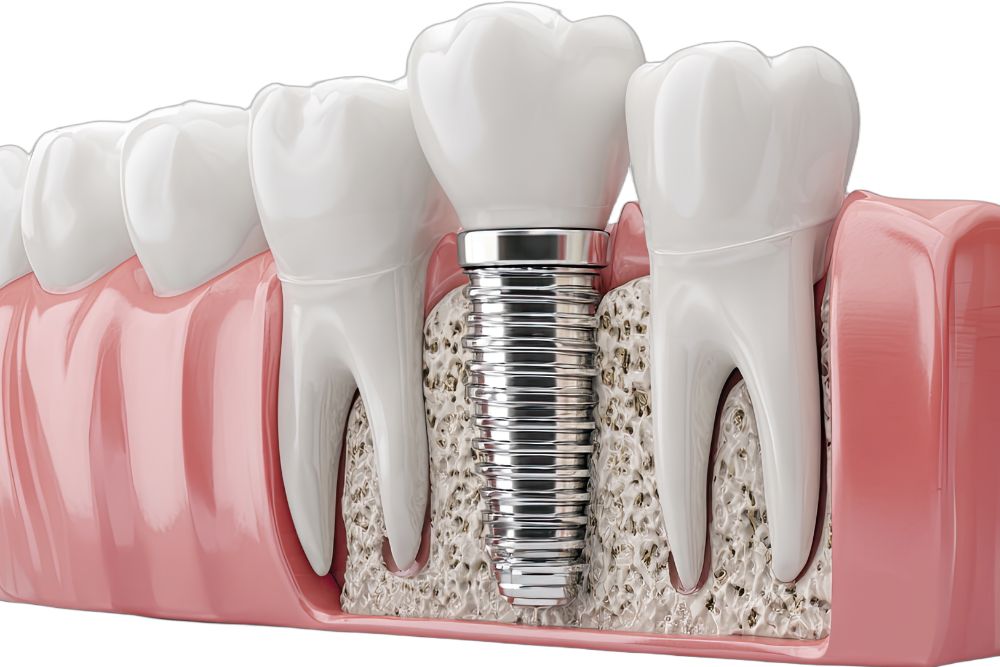Dental implants have revolutionized the world of restorative dentistry, offering a permanent and reliable solution to replace missing teeth. While the benefits are undeniable, patients often have questions about the procedure’s potential discomfort, its compatibility with pregnancy, and what to expect if an implant fails. This article explores these topics and provides valuable insights for those considering dental implants.
Is Dental Implant Surgery Painful?
One of the most common concerns about dental implants is the level of pain involved. During the procedure, local anesthesia is used to numb the area, ensuring that patients feel minimal discomfort. Some may experience pressure or vibration, but pain is typically not a concern during the surgery.
Post-surgery, mild soreness or swelling is normal and can usually be managed with over-the-counter pain medications. For most patients, the discomfort subsides within a few days. Dentists also provide personalized aftercare instructions to promote healing and minimize discomfort.

Dental Implants and Pregnancy
Many patients wonder, “Can you get dental implants while pregnant?” While dental implants are a safe and effective procedure, most dentists recommend postponing non-urgent dental surgeries, including implants, until after pregnancy.
The main reasons include:
- Anesthesia and Medications: The use of anesthesia, antibiotics, or pain relievers during the procedure may not be ideal for pregnant individuals.
- Healing Process: Pregnancy often shifts the body’s focus to supporting the developing baby, potentially affecting the healing process.
- Stress Reduction: Avoiding complex dental procedures can help minimize stress during pregnancy.
However, routine dental care and addressing urgent issues, such as infections, are crucial during pregnancy to maintain overall health.
What Happens If a Dental Implant Fails?
Dental implant failures are rare, with success rates above 95%. When failure does occur, it is typically due to factors such as poor osseointegration (failure of the implant to bond with the jawbone), infection, or mechanical stress.
If a dental implant fails, dentists will:
- Remove the Implant: The failed implant is carefully extracted.
- Evaluate the Cause: Identifying the reason for failure ensures proper treatment moving forward.
- Prepare for Replacement: After allowing the site to heal, the dentist may perform additional procedures like bone grafting to strengthen the jawbone before placing a new implant.
It’s essential to follow all post-surgery care guidelines and maintain excellent oral hygiene to reduce the risk of complications.

The Value of Dental Implants
Dental implants offer unparalleled durability, functionality, and aesthetic appeal, making them a superior choice for replacing missing teeth. While the cost and procedure may initially seem daunting, the benefits—such as improved oral health, confidence, and a lifetime of secure teeth—are worth the investment.
For those considering dental implants, consulting with a skilled dentist is the first step toward a healthier, more vibrant smile. By addressing concerns like pain, pregnancy compatibility, and potential failures, patients can make informed decisions about their oral health.







